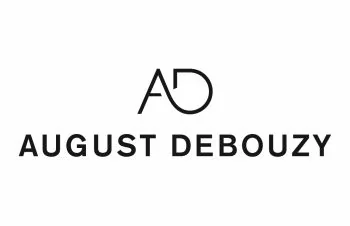The Rules on the Efficient Conduct of Proceedings in International Arbitration were officially launched in Prague on 14 December 2018. This new set of rules, also known as the Prague Rules, aims to reduce the time and costs involved in the arbitration proceedings.
The Prague Rules were drafted by a working group consisting of bar members from civil law jurisdictions many of whom are Russian and Eastern European lawyers. They are meant to be an alternative to the IBA Rules on the Taking of Evidence, which are considered to be dominated by a common law adversarial approach in evidence taking. The new set of rules is presented as stemming from the civil law procedural traditionand gives broader inquisitive powers to the arbitral tribunal.
The Prague Rules aim to provide a civil law perspective to issues such as fact finding, document production, the use of facts witnesses or the appointment of experts. The intent is "to provide a framework and/or guidance for arbitral tribunals and parties on how to increase efficiency of arbitration by encouraging a more active role for arbitral tribunals in managing proceedings".1 Overall, the Prague Rules bestow a more proactive and inquisitorial role upon the arbitral tribunal in the management of the arbitration.
Role of the arbitral tribunal in establishing the facts of the case
The Prague Rules emphasize the role of the arbitral tribunal in fact finding, providing that the tribunal is "encouraged to take a proactive role in establishing the facts of the case which it considers relevant for the resolution of the dispute".2 As such, the tribunal may order the production of documentary evidence, request that witnesses be made available for oral testimony, appoint experts, order site inspections and "take any other actions, which it deems appropriate".
The rationale for such prerogatives is that arbitrators being impartial and independent, they should be more inclined than the parties' counsels to an expeditious and efficient resolution of the dispute. However, while the tribunal is encouraged to investigate the circumstances of the case, the parties still bear the burden of proving the facts they assert.
Limitation of document production
>
Document production in international arbitration is often perceived as involving numerous documents being sent to the other party, resulting in lengthy and expensive arbitrations. Although this might prove appropriate for certain cases, it can often be a burden for the parties.
The Prague Rules radically limit document production by establishing as a general rule that "the arbitral tribunal and the parties are encouraged to avoid any form of document production, including e-discovery".3 A party may however request at the case management conference for certain documents to be produced by the other party. Provided that the arbitral tribunal is convinced that the document production is needed in this particular case, it shall decide a procedure for document production. In any case, a party may request the arbitral tribunal to order the production only of "a specific document" which is relevant and material to the outcome of the case, not in the public domain and in the possession or within the power or control of the other party.4
It is also specifically provided that any document submitted in the arbitration and not otherwise in the public domain shall be kept confidential and may only be used in connection with the arbitration.
Limitation of the involvement of fact witnesses
Under the Prague Rules, the tribunal is the one to decide which witnesses are to be called for examination during the hearing. Furthermore, it has a broad discretion in allowing or denying a witness to testify.5 If a party insists on presenting a fact witness, then it is recommended for the arbitral tribunal to call such witness.
The examination of any fact witness shall be conducted under the direction and control of the arbitral tribunal at the hearing.6
Tribunal-appointed experts
Whereas the IBA Rules equally provide for both party-appointed and tribunal-appointed experts, the Prague Rules contemplate mostly tribunal-appointed experts, paid for by the parties.7 However, the content of the expert reports is not regulated under the Prague Rules. The appointment of experts by the arbitral tribunal does not preclude the parties from having their own experts if they deem it necessary.8
Other matters than the taking of evidence
Iura Novit Curia. This legal maxim translating as "the judge knows the law" provides that the arbitral tribunal may investigate points of law, and can apply legal provisions not pleaded by the parties if it finds it necessary.9 In such cases, the arbitral tribunal shall seek the parties' views on the legal provisions it intends to apply.
Assistance in amicable settlement. The Prague Rules encourage the arbitral tribunal to actively assist the parties in reaching an amicable settlement of the dispute, including acting as a mediator.10 In the absence of settlement, the arbitrator having acted as mediator shall only continue to act as arbitrator if he obtains the written consent of all the parties.
A tool that sparks debate in the international arbitration community
The Prague Rules are tailored for parties and practitioners with a highly inquisitorial background. Arbitration being a product of the parties' consent, it is understandable that parties should be allowed to choose from the outset the legal culture that the tribunal shall embrace in conducting their arbitration. The version of the Prague Rules that was finally adopted is more of a compromise than the previous drafts which would have made it difficult to recommend them to French clients. Since, the intention is to make parties and arbitrators consider thoroughly which procedural techniques are better for any given case11, they have already proven successful as debates have taken and are taking place all around the world, encouraging parties to consider a "civil law" view on the way to handle evidence.
It will be very interesting to see in which cases the Prague Rules will be a preferred alternative to the IBA Rules, although we doubt that they will be used as a new tool by common law parties.
Footnotes
1 Preamble of the Prague Rules, noting that the Draft of 11 April 2018 mentioned specifically that the inquisitorial approach was to be used to increase efficiency.
2 Art. 3.1 of the Prague Rules.
3 Art. 4.2 of the Prague Rules.
4 Art. 4.5 of the Prague Rules.
5 Art. 5 of the Prague Rules.
6 Art. 5.9 of the Prague Rules.
7 Art. 6 of the Prague Rules.
8 Art. 6.5 of the Prague Rules.
9 Art. 7 of the Prague Rules.
10 Art. 9 of the Prague Rules.
11 A. Panov, "Why the Prague Rules may be needed?", Reuters, October 11, 2018.
The content of this article is intended to provide a general guide to the subject matter. Specialist advice should be sought about your specific circumstances.

